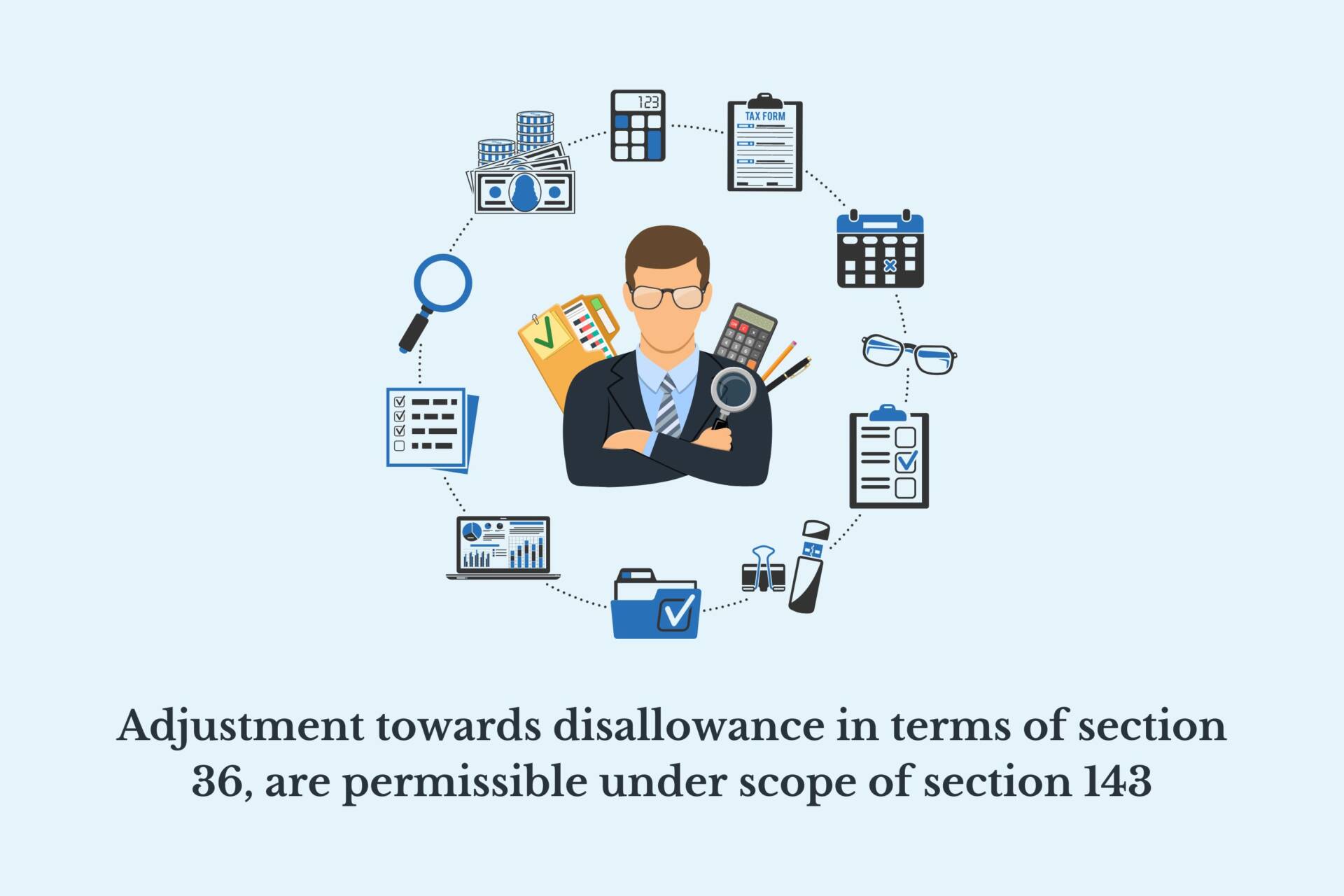Adjustment Towards Disallowance in Terms of Section 36, are Permissible Under Scope of Section 143
Introduction
Section 36 of the Income Tax Act provides for specific deductions and exemptions for business and professional costs. Certain expenditures, however, may be subject to disallowance or restriction under certain criteria outlined in the Act. These disallowances are meant to prevent tax benefits from being misused or abused.
What is Income Tax Act Section 143?
Section 143 of the Income Tax Act, on the other hand, deals with the assessment procedure and the authority of the Assessing Officer. It authorizes the Assessing Officer to examine the tax return and make any necessary modifications, additions, or disallowances to ascertain the taxpayer’s correct taxable income.
Adjustment towards disallowance in terms of section 36, are permissible under scope of section 143
When it comes to the adjustment towards disallowance under Section 36, the Assessing Officer can analyze the taxpayer’s expenses and determine if any disallowances are required based on the provisions in Section 36. Examples of common Section 36 disallowances include:
- Interest on borrowed capital: If the Assessing Officer determines that the interest claimed on borrowed capital is excessive or unreasonable, the interest may be prohibited in part or in full.
- Dividend distribution tax: The taxpayer’s dividend distribution tax is not deductible from business revenue.
- Provision for bad and questionable debts: If provisions for bad and doubtful debts are not made in conformity with the Act’s standards, the Assessing Officer may refuse them.
- Unexplained cash credits, investments, and such on the following: If the source of a cash credit, investment, or expenditure cannot be clearly explained, the Assessing Officer may deny the claim.

Concerning the permissibility of these adjustments under Section 143, the Assessing Officer has the authority to examine the taxpayer’s return and make changes if any anomalies or disallowances are discovered. The goal of such modifications is to arrive at the proper taxable income and ensure conformity with the rules of the Income Tax Act. But it is crucial to note that the Assessing Officer’s powers are not absolute, and there are options for appeal and dispute settlement if the taxpayer disagrees with the modifications made. The taxpayer has the right to plead their case and offer the required proof to support their claims.
Conclusion
Adjustments to disallowance under Section 36 of the Income Tax Act are admissible within the scope of Section 143’s conclusion. Section 143 allows for the examination and evaluation of income tax returns. During the assessment process, the tax authorities have the authority to investigate the disallowance of expenses claimed under Section 36 and make required modifications if they discover any anomalies or non-compliance with the Act’s provisions. As a result, adjustments pertaining to disallowance under Section 36 might be made as part of the assessment process under Section 143 to guarantee proper calculation of taxable income.



